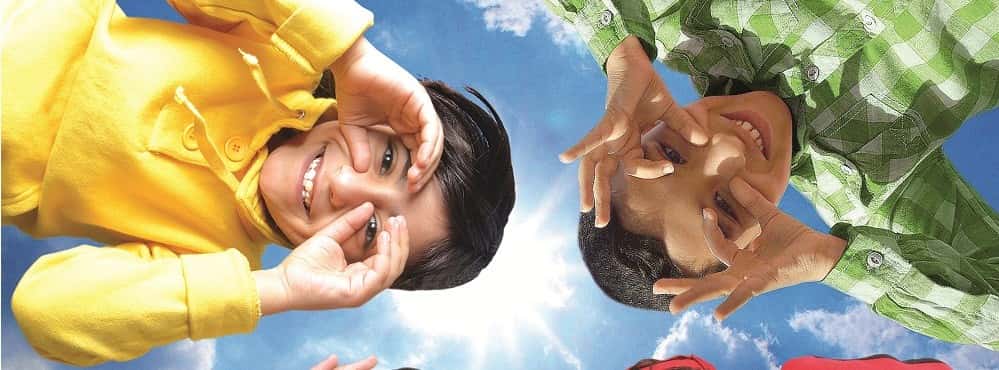-
Dear Parents:
Prince Sultan bin Abdul-Aziz Center for Special Education Support Services is one of the education development projects of the Ministry of Education that aims to provide quality and effective support services to students with disabilities who are served under MOE public, special, and inclusion education programs as well as to support the efforts of the ministry in that regard.
The Center was inaugurated in 2014 and has been acknowledged as the first center in the Kingdom of Saudi Arabia under the umbrella of MOE that provides such a pioneering model of service. Services are provided free of charge to clients who are eligible according to the approved admission criteria.
-
Doctor:
Will assess, evaluate and diagnose patient based on a previous records and reports in addition to some tests and examinations. This is done to develop a therapy and treatment plan for the child. After that they familiarize the family with the comprehensive services that are going to be provided, the development and treatments plans needed inside or outside The Center. Keeping in mind that some cases require examination by other doctors and / or specialists.
-
Case Manager:
Serves as the team link, coordinating between the family and the specialists, providing information to the family regarding the Center services. The Case Manager is responsible to communicate the client rights and duties to the family. The Case Manager is also in charge of the therapy plan and its progress; they coordinate meetings between specialists and the families in addition to making sure that services provided are the most appropriate for their needs.
-
Occupational Therapist:
Occupational Therapy focuses on improving the child's daily living skills and assists in performing daily tasks and activities at school or home. These activities may include dressing, eating, writing and entertainment activities such as pre-writing skills (drawing lines, and circles) improving their general cognition by encouraging them to find solutions. When the children perform these activities independently their confidence will build up.
-
Physical Therapist:
Pediatric Physical Therapy participates and assists in early diagnosis of many problems; it uses different methods and techniques for treating a wide array of disorders. The Physical Therapist can diagnose and treat developmental, neurological, muscular and skeletal disorders. In these cases treatment and therapy will focus on developing fine and gross motor skills, maintaining balance and movement coordination. Enhancing the child's physical abilities and improving the cognitive and sensory functions . Also, assisting in developing transfer skills and the use of assistive devices.
-
S & L Pathologist:
A specialist who is responsible for assessment, evaluation and treatment of children who are facing difficulties in communication (speech and language). The treatment is done through enhancing communication skills by using language support devices and signals. This is to develop understanding of the incoming information, identify voice quality and degree, in addition to Attentive Communication procedures.
-
Psychologist:
The Psychologist assesses and evaluates mental disorders to provide treatment plans by means of sessions with children and their families. To assess a child the psychologist will undertake a clinical assessment using a variety of methods including, psychometric tests, interviews and observation of behavior. These assessments allow a therapy method to be selected.
-
Social Worker:
The responsibility of the Social Worker includes research and survey for each child registered in the Center. The Social Worker collects all information related to the child's and family status, follows up and ensures that the child has received all entitlements from the Ministry of Social Affairs. Moreover, he/she follow's up medical supplies through coordination with specialists and related authorities.
-
Family Counselor:
The role of the Family Consular is in helping parents to understand the special needs of the child, to be as objective as possible in looking at their behavior. Also, providing them with improved in communication methods with their child, and by using a parental guidance leading to a better adaptation and acceptance of their problems and feelings. The guidance would focus on personal growth to become effective individuals reaching their fullest potential to help their children in achieving the best results.
-
Special Education:
The concept of Special Education includes evaluation and raining for pre-school skills, also providing educational consultancies to the family regarding the in-class-environment needs for the child. In addition to these tools entertainment therapy which will develop and enhance playing skills directed to the child through differenttechnical and entertainment skills and activities. Identify learning levels and potential capabilities and provide skills development to the child's parents, also participate in continuous evaluations to follow up learning, emotional, motor, speech and social development progress of the child, develop strategy tools in learning program that matches each child case.Contributes in collective activities to improve communication skills of special need children.
-
Parents:
The most important part of the team is the family. The family has the greatest role in the development of their child's abilities. The specialists explain the goals and skills in sessions in order to apply it at home. To make sure that the treatment goals are achieved, there must be continuous cooperation between the family and the specialists. It is very important to observe the child's development and communicate any concerns to the rest of the team.
Contact Us
Prince Sultan Center for Special Education
Support Services.
Muhammad Almahna, Ar Rawabi
Riyadh 14214
Saudi Arabia
Telephone 920009084










